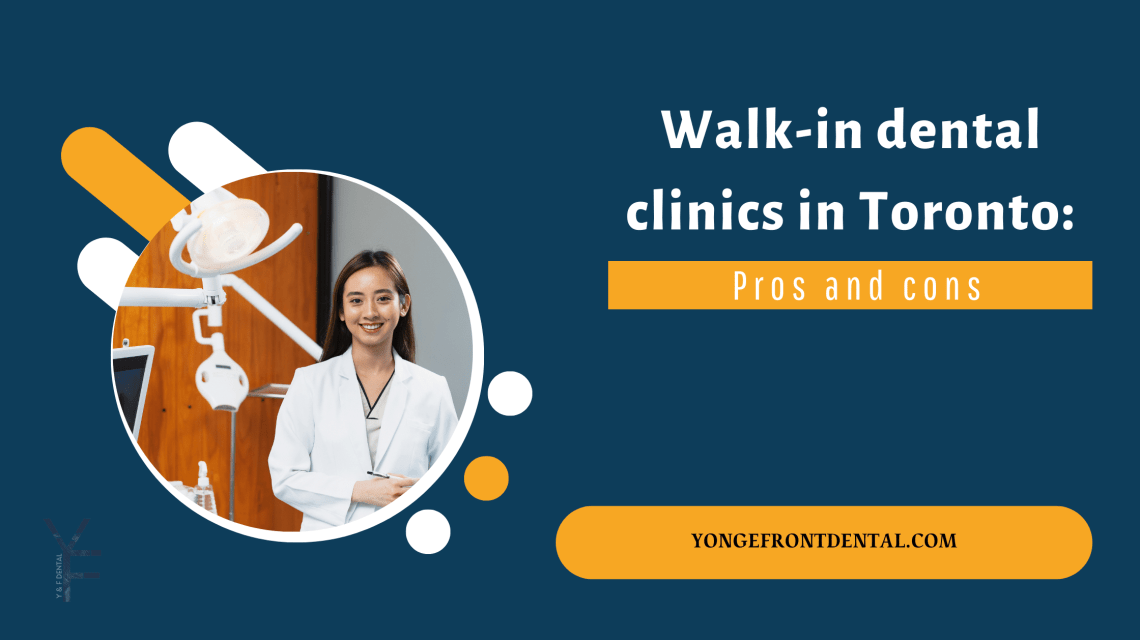Oral health plays a crucial role in overall well-being, yet many people delay visiting the dentist due to packed schedules, unexpected issues, or difficulties in securing appointments. For those in urgent need of dental care, walk-in clinics provide an accessible solution without the hassle of long wait times.
These clinics cater to individuals seeking immediate care for emergencies, minor procedures, or routine check-ups without prior appointments. However, while they offer convenience, they may not be the best option for every situation.
If you’re wondering whether a walk-in dental clinic is the right choice for you, this guide breaks down the pros and cons to help you make an informed decision.
What Are Walk-In Dental Clinics?
A walk-in dental clinic is a facility that allows patients to receive dental care without scheduling an appointment in advance. Unlike traditional dental practices that require pre-booked visits, these clinics operate on a first-come, first-served basis.
They primarily cater to:
- Emergency dental needs such as severe toothaches, broken teeth, or infections.
- Routine check-ups and cleanings for patients without a regular dentist.
- Minor dental procedures such as fillings, extractions, or X-rays.
These clinics are particularly beneficial for individuals experiencing sudden discomfort or those who struggle to find time for scheduled visits. However, there are both advantages and drawbacks to consider before relying on walk-in services.
Advantages of Walk-In Dental Clinics
Immediate Access to Dental Care
Dental emergencies can arise unexpectedly, and waiting days or weeks for an appointment isn’t always feasible. Walk-in clinics provide a solution for urgent issues like:
- Severe tooth pain or abscesses that require prompt treatment.
- Chipped or broken teeth from accidents or injuries.
- Lost fillings or crowns that need immediate replacement.
With no appointment required, patients can seek care as soon as symptoms arise, minimizing discomfort and preventing complications.
Convenience for Busy Schedules
Many people struggle to find time for dental check-ups due to work, family responsibilities, or other commitments. Walk-in clinics offer flexibility by allowing patients to visit at their convenience, making it easier to maintain oral health without disrupting their daily routines.
This is especially helpful for:
- Shift workers or professionals who find it difficult to schedule weekday appointments.
- Parents juggling multiple responsibilities who need flexible healthcare options.
- Travelers or new residents who have not yet established care with a regular dentist.

No Long-Term Commitment
Unlike traditional dental offices where patients build long-term relationships with their providers, walk-in clinics operate on a one-time service basis. This can be beneficial for individuals who:
- Are visiting the city and require temporary dental care.
- Have not yet decided on a permanent dental provider.
- Need immediate care but plan to follow up with a family dentist later.
Cost-Effective for Minor Issues
For those without dental insurance, scheduling an appointment at a private practice may feel expensive. Walk-in clinics often provide affordable rates for basic procedures, making them a budget-friendly option for:
- Dental exams and X-rays.
- Routine cleanings.
- Simple extractions or fillings.
However, costs can vary significantly, so it’s essential to inquire about pricing before proceeding with treatment.
Emergency Dental Services Without ER Visits
Many people mistakenly visit the emergency room for severe dental pain, only to be referred to a dentist later. Walk-in clinics help reduce unnecessary ER visits by providing direct dental care for urgent issues, ensuring faster relief and proper treatment.
Drawbacks of Walk-In Dental Clinics
Limited Availability of Specialized Services
While walk-in clinics handle general dental concerns, they may lack specialized treatments such as:
- Dental implants for missing teeth.
- Orthodontic procedures like braces or Invisalign.
- Cosmetic treatments such as veneers or professional whitening.
If a procedure requires advanced expertise, patients may need to seek care from a full-service dental clinic where specialists provide personalized and long-term treatment plans.
Potentially Long Wait Times
Although walk-in clinics eliminate the need for appointments, patients often experience longer wait times—especially during peak hours or weekends.
Factors that contribute to delays include:
- High patient volume during lunch hours or after work.
- A shortage of available dentists on staff.
- More complex cases requiring extended treatment times.
For those with limited time, scheduling a visit with a trusted dentist may be a better option to avoid unpredictable wait times.

Less Personalized Care
A regular dentist maintains detailed records of a patient’s oral health history, allowing them to provide customized treatment plans. Walk-in clinics, however, operate on a short-term basis, meaning:
- Patients may see a different dentist each time they visit.
- Limited patient history may affect diagnosis and treatment recommendations.
- Follow-up care is often left to the patient’s responsibility.
For those who require ongoing dental work or monitoring, a full-service clinic provides a more personalized approach to care.
Insurance Limitations
Not all walk-in clinics accept the same range of dental insurance plans, and some may require upfront payments before treatment. Patients should confirm coverage details with the clinic beforehand to avoid unexpected expenses.
Common payment challenges include:
- Higher out-of-pocket costs for emergency visits.
- Limited financing options for major procedures.
- Variability in insurance acceptance between different clinics.
Risk of Inconsistent Quality
Since walk-in clinics prioritize accessibility and speed, the quality of care may vary depending on:
- The experience and expertise of the attending dentist.
- The clinic’s equipment and facilities.
- The availability of follow-up care.
For those seeking comprehensive, high-quality treatment, choosing a dedicated dental provider ensures consistency and long-term oral health management.
Alternatives to Walk-In Clinics
While walk-in clinics provide immediate care, they may not always be the best long-term solution. For individuals looking for both convenience and quality, a full-service dental clinic offers:
- Emergency dental services with same-day appointments available.
- A full range of treatments, from general dentistry to cosmetic procedures.
- Personalized care plans for long-term oral health management.
- Experienced dental professionals dedicated to patient comfort and satisfaction.
- Flexible scheduling options for both routine visits and urgent care needs.
Unlike walk-in clinics that focus on short-term solutions, a trusted dental clinic prioritizes lasting oral health by offering tailored treatments and preventative care to help patients maintain strong, healthy smiles for years to come.

Final Thoughts
Walk-in dental clinics offer a convenient option for those in need of urgent dental care or last-minute appointments. They provide quick access to treatment, flexible scheduling, and affordable solutions for minor procedures. However, they may not always be the best choice for those requiring specialized services, ongoing care, or a long-term dental provider.
For patients in Toronto seeking a balance between accessibility and quality, a dedicated dental clinic provides comprehensive care with a focus on long-term oral health. Whether you need emergency treatment, cosmetic procedures, or regular check-ups, experienced professionals ensure you receive the best care tailored to your needs.


